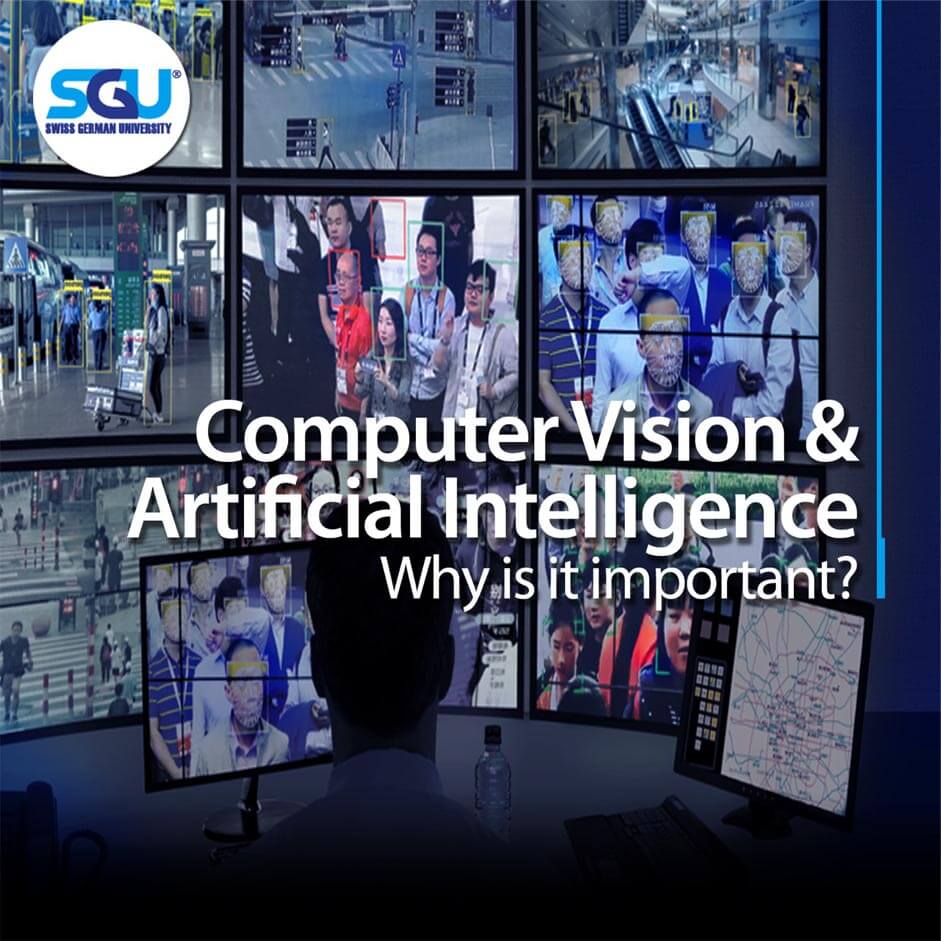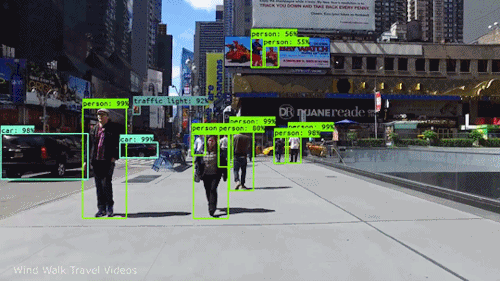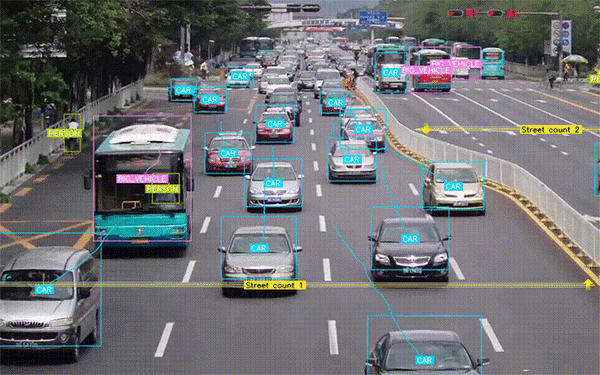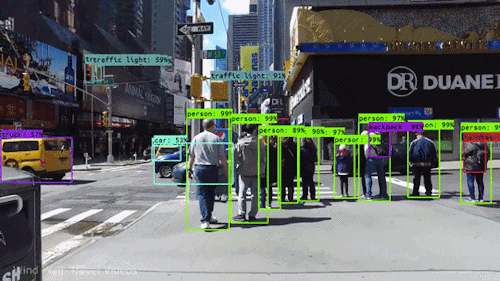
Computer Vision & Artificial Intelligence, Why is it Important?
When shopping using e-money, we usually make payments by scanning the QR code via cellphone. Not only as payment, but QR code is also often used to open locks and other activities.
The QR code technology is an example of the application of Computer vision. Computer vision is a type of artificial intelligence (AI) that uses deep learning to analyze visual data, so information can be intelligently used.
Currently, the implementation of Computer Vision is growing and widely implemented in everyday life. Lecturer at the Swiss-German University Master of Information Technology, Adhiguna Mahendra, discussed the implementation of this feature when he was a speaker at the 7th Annual Conference on Management and Information Technology organized by the Master of Information Technology Swiss German University. Some computer vision and deep learning implementations in everyday life:

- Office or Shopping Center
Several Computer vision features can be applied in office buildings or shopping centers. This feature can be useful to assist building managers in carrying out operational cost efficiency and security. Some of these features are:
- Face recognition can automatically detect facial features and recognize it. This feature then classifies face recognition into known persons and unknown persons. Face recognition can also be used to identify a customer or even a blacklisted person.
- People counting allows you to know the number of people in a certain area with multiple regions of interest. This can be done to detect people’s traffic, like at the front door, gate, elevator, lift, lobby, etc. With people counting, an organization can easily gather the number of visitor data and analyze peak hour at each perspective area.
- Crowd estimation is an analytic that provides you an insight into mass concentration in a certain area of interest. This can ease you estimate the number of people that is a particular event and saving your cost at once when counting manually.
- Crowd behaviour is analytic that commonly used for detecting behavior anomalies of the crowd, like running and fighting. This will help you to maintain order by spotting a sudden movement from the crowd and localize the issue immediately.

- Transportation and traffic
It took enormous resources to exert control over the entire city. Computer vision technology can help the police and the Department of Transportation to evaluate and monitor transportation and traffic efficiently and thoroughly. Some examples of implementing features on transporatation and traffic include:
- Vehicle counting allows you to count every vehicle passes and classify them into a motorcycle, small, medium, and big vehicle.
- Vehicle dwelling helps you identify how long a vehicle stop in a certain area of interest. This valuable data from our analytic will allow the police department or local traffic department (Dishub) to evaluate the traffic system.
- Vehicle Intrusion will allow you to detect vehicles that enter a prohibited area at a certain time. In some of the cases, you can apply these analytics when you are managing a parking area.

- Public areas
Computer vision and deep learning can also help local governments to monitor incidents in the public area. Some of the features that can be used include:
- Area acquisition helps the local government to detect a specific area that is occupied by a street vendor. We started by pre-defining which area should be cleared of PKl and calculating density on the desired area. Other applications include traffic management surveillance and law enforcement.
- Water Level detection is analytic for detecting water levels in sewers, waterways, dams, and other water channels. This technology can detect flood mitigation.
Artificial intelligence (AI) not only brings convenience but also efficiency. Data from the McKinsey Global Institute states that AI technology can provide USD 13 trillion for the global economic market by 2030. McKinsey also estimates that around 70% of companies will adopt AI in 2030 and most large companies will use various technologies in various sectors.
The McKinsey report explains that AI is likely to impact the economy through a variety of channels, including assisting or augmenting human resources, replacing it, expanding available products and services, increasing global data flows, and creating wealth. But the report notes that the implementation of AI technology is likely to incur various costs of corporate and social restructuring, as well as disrupt jobs and reduce consumption.
“Increased productivity, labor-saving technology is a challenging problem for all economies in the world. Technologies such as AI are likely to lead to greater income inequality,” said Takashi Miwa, Head of Japan Economics at Nomura.
About SGU
SWISS GERMAN UNIVERSITY (SGU) is an international university in Indonesia, was established in 2000 as a joint effort between Indonesia, Germany, Switzerland, and Austria. We are the pioneer in offering international curricula in Indonesia.
Qualified students can graduate with a Double Degree from Indonesia and Germany, which SGU provides in cooperation with partner universities; surely a valuable tool for your future careers. Ever since its establishment, SGU has been dedicated to delivering quality education in line with international standards and aims to develop skilled professionals who meet the demands of the industry. To achieve its objectives, SGU offers quality-oriented learning through 12 Bachelor’s Degree Programs and 4 Master’s Degree Programs ranging from Engineering, Information Technology, and Business to Life Sciences and Social Sciences. Furthermore, with small class sizes, and with English as the medium of instruction, you can look forward to pursuing your tertiary education and degree with full confidence.***
Back
